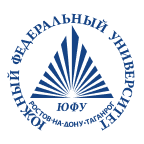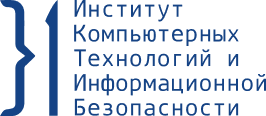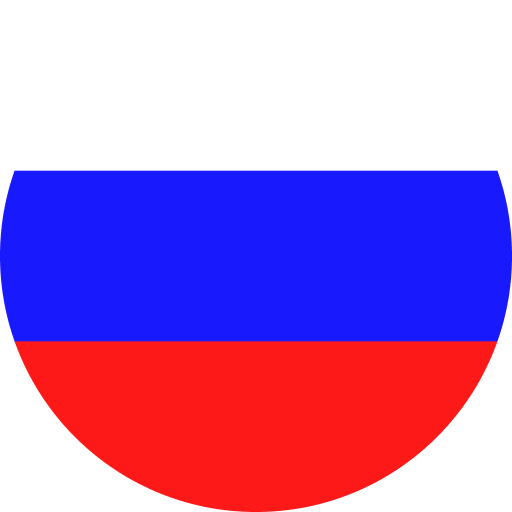Postdoctoral Fellowship Program 2021
- English
- Русский
The postdoc program of the Institute of Computer Technology and Information Security, Southern Federal University located in Taganrog, Russia is intended for citizens of Russia and foreign countries – PhDs / candidates of science who are fluent in English, with experience publishing research papers indexed in Scopus / WoS, who have not previously worked in Southern Federal University. The age limit for participants is 39 years.
The program is designed for 3 years with an extension every year. Projects are carried out under the supervision of a professor. From the first year of work, the postdoc has to lead the research team of the project made of postraduate Master and PhD students.
Applications for participation in the competition are accepted until October 26, 2021. The results of the competition will be announced by November 30, 2021.
To participate in the competition, select a project and fill out the application form.
Applicant requirements
- up to and including 39 years of age;
- academic degree of candidate of science (or successful defense of a candidate’s dissertation) or PhD or equivalent degree obtained at Russian or foreign University; priority is given to researchers who have received an academic degree within the last 3 years;
- fluency in English (at least Upper-Intermediate level);
- at least 3 research papers in the last 3 years in international peer-reviewed journals indexed in Scopus and / or Web of Science;
- absence of employment relations with SFedU over the past 5 years.
Working conditions
- employment in SFedU under a fixed-term employment contract as a research fellow of ICTIS with a monthly salary of ₽83,500 (for foreign citizens, the University applies for the status of a highly qualified specialist);
- compensation for living expenses in the amount of up to ₽10,000 per month;
- equipped workplace in ICTIS SFedU;
- covering registration fees and travel expenses for two conferences per year;
- payment for access to cloud services;
- payment of the cost of a single trip from the place of residence to Taganrog (bus or railway or air tickets in economy class) for postdocs living outside of Taganrog, Russia;
- opportunity to participate in other research projects and professional development programs of SFedU on a general basis.
Requirements for the performance
- Formation of a project research group made of SFedU students (at least two undergraduates and one post-graduate student) under the supervision of a postdoc, in the first year of activity.
- Publication activity of the supervisor and postdoc in collaboration with members of the project research group made of SFedU students.
- In the first year: at least two peer-reviewed publications (including one in a journal) indexed in Scopus and (or) Web of Science.
- In the second year: at least two peer-reviewed publications in journals (including one in a journal of the first or second quartile) indexed in Scopus and (or) Web of Science.
- In the third year: at least two peer-reviewed publications in journals of the first or second quartile. Filing an application for international or Russian patent is equivalent to a research paper indexed in Scopus or Web of Science.
- Postdoctoral supervision of Master’s Thesis – at least two per year.
- At least one application per year for a research grant with a funding volume of at least 1 million rubles.
- Oral presentations of scientific results at research conferences by the postdoc – at least two per year.
- Development of the author’s course during the first year of work (program of the discipline, educational and methodological materials posted in the ICTIB e-learning system lms.sfedu.ru) in English for the master’s degree programs of the Institute of Computer Technologies and Information Security and the implementation of the developed course in the second and third years of work.
Feel free to ask question on postdoc program. Phone: +7(863) 218-40-00 ext. 30-010, Alexey Samoylov. Email: info@localhost
To participate in the competition, select a project and fill out the application form.
Open PostDoc Positions in 2021
Theory and applications of graph neural networks, fuzzy machine learning algorithms
| Supervisor | Alexander Bozhenyuk, Doctor of Technical Sciences, Professor. E-Mail avbozhenyuk@sfedu.ru. Profile in Scopus |
| The goal and objectives of the project | The goal of the research is to develop the theoretical foundations and practical applications of graph neural networks and soft machine learning algorithms for graph analytics and/or computer vision problems. Research objectives: State-of-the-art and open issues in the field of graph and fuzzy neural networks. Research of convolution operations on graphs, deep auto-encoders, vector representations (embeddings). The study of generalized graph structures: hypergraphs and metagraphs. Designing graph NoSQL databases. Research and software implementation of machine and deep learning algorithms. |
| Requirements for an applicant | Knowledge in the field of artificial intelligence methods, graph theory, fuzzy logic, machine learning, and deep learning algorithms. Skills of working with graph databases. Programming skills using machine learning libraries for Python. |
| Participation in educational activities | The applicant will have to develop and implement the Research Frontiers in Artificial Intelligence course (5 credits) for Master students of all ICTIS directions. Content of the discipline: Modern achievements of artificial intelligence: theoretical foundations and practical applications. Generative artificial intelligence. Graph probability models, Bayesian networks. Graph neural networks. Compact representation methods for machine analysis of large volumes of multidimensional data. Methods of knowledge representation and logical inference. New architectures of artificial neural networks. Training of artificial neural networks on limited data sets. Training of artificial neural networks with reinforcement. Improving the methods of teaching artificial intelligence models. Countering malicious effects on AI algorithms. |
Synergetic approach to complex system control
| Supervisor | Gennady Veselov, Doctor of Technical Sciences, Professor. E-Mail: gev@sfedu.ru. Profile in Google Scholar |
| The goal and objectives of the project | The goal of the research is to develop the theoretical foundations and methods of synergetic control of complex systems. Research objectives: analytical review of existing methods of complex system control, development of new methods of intelligent control, control of distributed systems, hierarchical control, group control, control of systems in discrete time. |
| Requirements for an applicant | Knowledge in the field of modern control methods, intelligent control methods, multi-agent systems, the theory of dynamic systems. Skills in software development, synthesis of nonlinear control systems, modeling and research of nonlinear control systems. |
| Participation in educational activities | The applicant will have to develop and implement a course on Synergetic Control Theory (5 credits) for Master students of all ICTIS directions. Content of the discipline: the principle of dynamic expansion-compression of the phase space in control theory, the method of analytical design of aggregated regulators, synergetic synthesis of adaptive control systems, synthesis of discrete control systems, intelligent technologies of synergetic control. |
Distributed Computing for Cyber-Physical Systems
| Supervisor | Valery Vyatkin, Doctor of Technical Sciences, Professor. E-Mail: vvyatkin@sfedu.ru. Profile in Google Scholar |
| The goal and objectives of the project | The postdoctoral fellow will be involved in research activities focusing mainly on various aspects of modern industrial computing; such as system level design and validation of industrial control and automation systems, simulation and verification and dependable communication. |
| Requirements for an applicant | We expect that a potential candidate would have experience in such priority areas, as multi-agent architectures, flexible production systems, service-oriented architecture, Internet of Things, Semantic Web, programmable logic controllers software (e.g. IEC 61131-3, IEC 61499), distributed programming languages, simulation in the loop, advanced software engineering concepts, formal methods and models. It is expected that the postdoctoral fellow would have strong software engineering and development skills and would lead a team of master and Ph.D. students. To qualify for the position of postdoctoral research fellow, an applicant must have a PhD, or doctoral degree or a degree equivalent to a doctorate, in computer science, electrical and computer engineering, industrial automation, or a similar topic. |
| Participation in educational activities | The applicant will have to develop and implement a course on Cyber-Physical Systems (5 credits) for Master students of all ICTIS directions. Suggested content: basic concepts and definitions, fundamentals of industrial Internet of Things and cyber-physical systems, multi-agent architectures, design of cyber-physical systems, smart manufacturing. |









